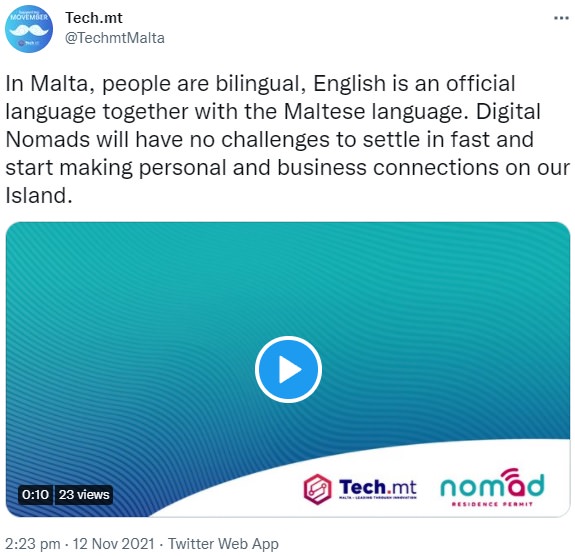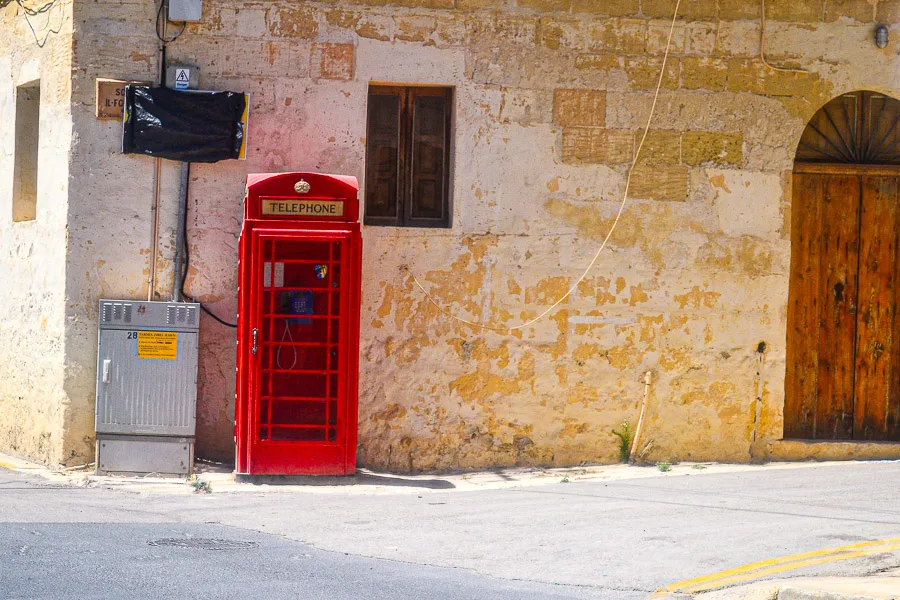Nestled in the heart of the Mediterranean Sea, Malta is a small yet culturally vibrant island nation known for its fascinating linguistic diversity. The official languages of Malta, Maltese and English, are integral to the country's identity. However, the question remains: what language do Maltese people truly speak? This article delves into the languages spoken across the islands, tracing their history, usage, and cultural significance to provide a comprehensive understanding.
Understanding the languages spoken in Malta transcends mere linguistic curiosity. It provides a window into the nation's storied past, shaped by the influences of numerous civilizations over millennia. From the ancient Phoenicians and Romans to the Knights of St. John and the British Empire, each era has left an indelible mark on the Maltese language, contributing to its rich tapestry.
This guide seeks to illuminate Malta's linguistic landscape, catering to travelers, expatriates, and language enthusiasts alike. By exploring the nuances of communication in this dynamic nation, we uncover what makes Malta's language scene truly exceptional.
Read also:Katie Ledeckys Inspiring Journey Overcoming Pots And Achieving Greatness
Table of Contents
- The Official Languages of Malta
- A Historical Perspective on Language in Malta
- The Role of Language in Daily Life
- Languages in the Educational System
- Language's Vital Role in Tourism
- Exploring Sub-Dialects and Regional Variations
- The Influence of Foreign Languages in Malta
- Language Statistics in Malta
- Practical Tips for Communicating in Malta
- Final Thoughts
The Official Languages of Malta
Malta officially recognizes two languages: Maltese and English. Both are integral to government operations, educational institutions, and media outlets, playing pivotal roles in daily life. Maltese, a Semitic language with significant Italian and English influences, is unique to the Maltese islands. Conversely, English acts as a bridge to the global community, widely spoken and understood by the local population.
Maltese: The Heart of National Identity
Maltese stands as the national language, spoken by the majority of the population. Rooted in Siculo-Arabic, it has evolved over centuries to incorporate elements from Italian, French, and English. This linguistic amalgamation reflects Malta's historical interactions with various nations, enriching its cultural fabric.
English: A Gateway to the World
English occupies a crucial position in Malta's linguistic ecosystem. It is indispensable in business, tourism, and education, ensuring Malta's connectivity with the international community. The bilingual or even trilingual proficiency of most Maltese citizens underscores the widespread use and importance of English.
A Historical Perspective on Language in Malta
The evolution of language in Malta is a captivating narrative of influences from diverse civilizations. Each culture that has graced the island's shores—Phoenicians, Romans, Normans, and British—has left an enduring imprint on the Maltese language.
Phoenician and Roman Contributions
The earliest recorded language in Malta was Punic, a dialect of Phoenician. With the arrival of the Romans, Latin began to permeate the local language. These early influences laid the groundwork for the linguistic diversity observed today.
Norman and Sicilian Influences
The Norman era introduced Sicilian to Malta, further enriching the local dialect. This period witnessed the blending of Arabic and Romance languages, resulting in a distinct linguistic identity that continues to define Maltese speech.
Read also:Magic Johnsons Nba Journey A Legendary Career That Transformed Basketball
The Role of Language in Daily Life
In the daily lives of Maltese citizens, Maltese and English coexist harmoniously. The phenomenon of "code-switching," where speakers fluidly alternate between the two languages based on context, is a hallmark of Maltese communication.
Code-Switching in Conversations
Code-switching enables Maltese speakers to express themselves with greater ease and authenticity. For instance, a conversation might begin in Maltese and shift to English for technical terms or modern expressions. This linguistic flexibility enhances communication and reinforces the bilingual character of Maltese society.
Media and Entertainment
Malta's media landscape caters to both official languages, ensuring accessibility for all audiences. Newspapers, television programs, and radio broadcasts are predominantly in Maltese and English, fostering a strong cultural connection between the two languages.
Languages in the Educational System
Malta's educational framework is bilingual, employing both Maltese and English as mediums of instruction. This system equips students with fluency in both languages by the time they complete their studies.
Primary and Secondary Education
In primary schools, Maltese serves as the primary language of instruction, while English is introduced as a second language. By secondary school, students are expected to achieve proficiency in both languages, preparing them for further education and professional endeavors.
Higher Education
At the university level, English often takes precedence as the language of instruction, especially for courses involving international students. This approach aligns Malta with global educational standards, enhancing its appeal as a destination for higher learning.
Language's Vital Role in Tourism
Tourism forms a cornerstone of Malta's economy, and language plays a pivotal role in this sector. The ability of Maltese locals to communicate in multiple languages significantly enhances the tourist experience, drawing visitors from diverse backgrounds.
Language Skills Among Tourists
Maltese residents are adept at speaking several languages, including Italian, French, and German, in addition to Maltese and English. This linguistic versatility ensures that tourists feel welcomed and understood, regardless of their native language.
Language Services for Tourists
Hotels, restaurants, and tourist attractions frequently provide services in various languages. Signage, menus, and informational brochures are often translated into English, Italian, and other languages, making Malta an accessible and inviting destination for international travelers.
Exploring Sub-Dialects and Regional Variations
While Maltese is the predominant language across the islands, regional dialects exist, reflecting the distinct cultural identities of different areas within Malta.
Regional Dialects
Regions such as Gozo and rural parts of Malta exhibit unique dialects that differ slightly from standard Maltese spoken in urban areas. These variations are characterized by distinctive pronunciation and vocabulary, adding depth to the linguistic landscape.
Preservation of Dialects
Efforts are underway to preserve these regional dialects as an integral part of Malta's cultural heritage. Linguists and language enthusiasts study and document these variations to ensure their survival for future generations.
The Influence of Foreign Languages in Malta
Beyond Maltese and English, several foreign languages, including Italian, French, and German, are spoken in Malta. Their prevalence stems from historical ties and Malta's status as a popular tourist destination.
Italian Influence
Italian enjoys a strong presence in Malta, attributable to historical connections and geographic proximity. Many Maltese individuals learn Italian as a third language, further expanding their linguistic capabilities.
Other Languages
French and German are also spoken by segments of the population, particularly among those who have studied abroad or work in international settings. These languages contribute to Malta's vibrant multilingual environment.
Language Statistics in Malta
Data from Malta's Central Statistics Office highlights the nation's linguistic diversity. Recent surveys reveal the following:
- 90% of Maltese citizens speak Maltese.
- 88% speak English.
- 66% speak Italian.
- 17% speak French.
These statistics underscore the significance of bilingualism and multilingualism in Maltese society, illustrating the nation's linguistic richness.
Practical Tips for Communicating in Malta
For visitors and expatriates, navigating Malta's linguistic landscape can enhance their experience. Consider the following tips for effective communication:
- Learn basic Maltese phrases to demonstrate respect for the local culture.
- Be prepared to communicate in English, which is widely understood and spoken.
- Utilize Italian or French if you possess proficiency in these languages, as they are appreciated in certain contexts.
- Carry a translation app or phrasebook for emergencies to facilitate communication.
Final Thoughts
Malta's linguistic diversity is a testament to its rich history and cultural heritage. The harmonious coexistence of Maltese and English, along with other foreign languages, creates a dynamic and inclusive communication environment. Understanding the languages spoken in Malta is essential to appreciating the nation's identity and fostering meaningful connections with its people.
We encourage you to share your thoughts and experiences in the comments section below. Have you visited Malta and encountered its linguistic diversity? What was your experience like? Explore other articles on our site for additional insights into global cultures and languages.


